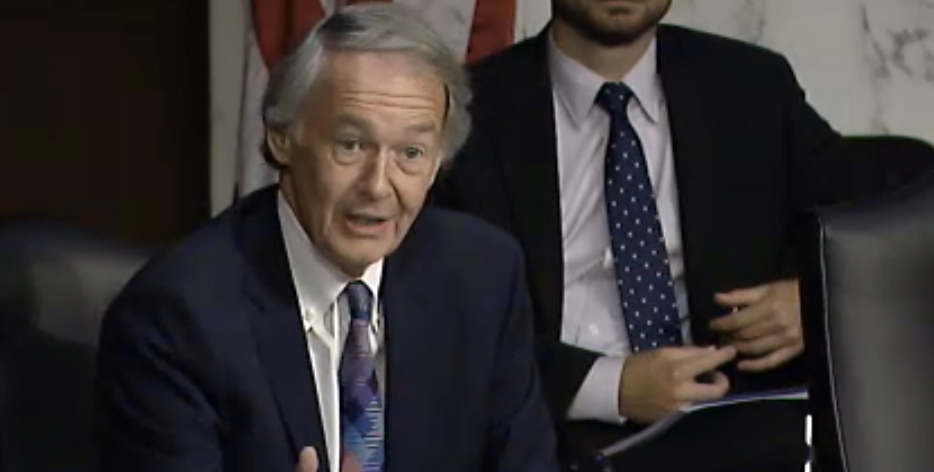Senator Challenges Comcast, AT&T Execs On Opposition To Municipal Broadband
The Senate Commerce Committee held hearing today on broadband competition, media consolidation, and the future of online video transmission. Among the witnesses were Comcast exec David L. Cohen and AT&T bigwig John T. Stankey. During the hearing, Massachusetts Senator Ed Markey directly asked the two about competition from municipal broadband providers.
Referring to Cohen’s repeated assertions that 99% of all American communities have at least two broadband providers to choose from, Markey asked, “Do either of your companies oppose municipalities being able to deploy their own broadband as a third wire?”
Cohen went to great lengths to tie himself in knots to oppose municipal broadband without opposing it. He replied:
Generally speaking, as a company, we have serious questions about whether municipalities should get into the broadband business … I was in city government for six-and-a-half years, I know what city government can do. I think it’s a mistake to do to it, and so we will advocate at the municipal government level that we think this is a mistake. The answer is we don’t oppose it — we don’t have the right to oppose it — we have the right to advocate against it.
Sen. Markey, however, was not satisfied with Cohen’s response. “More competition is the answer to all of these problems,” he said. He continued:
We talk about two, we could talk about three if municipalities deployed broadband … My basic philosophy, this is very simple, is that Darwinian, eye-watering, bone-chilling competition is the answer to all regulation. The smaller the number of competitors, the more regulation you need.
Cohen shot back, “All I’m going to say is that taxpayer subsidy of poorly-run and ultimately bankrupt municipal broadband networks don’t benefit anyone.”
“But if a community wants to do it, should they be allowed to do it?” Markey asked.
“They should be allowed to do it,” Cohen reluctantly answered.
Markey then turned to Stankey to answer the same question. Stankey tried an alternate approach, beginning, “If it’s an underserved community where there’s been no private solution…”
Markey, however, cut him off, saying, “No no no no no,” and specifically framing the question as competition from municipal broadband networks, to make the likes of AT&T and Comcast step up their game.
Stankey and Markey argued, overlapping, with Stankey saying, “we don’t believe that private companies should actually compete against public-subsidized, taxpayer cost to capital in that market.”
Markey found exactly this to be the problem. “Prices go down dramatically” wherever municipalities get involved, he pointed out. “All of a sudden, the two private sector incumbents find a way to lower prices” when suddenly there is real competition in the field.
Neither Cohen nor Stankey had time to reply, as Markey’s question time expired and the hearing moved on to the next Senator.
The FCC has been considering overruling state laws forbidding the expansion of municipal broadband, most of which are put forth by the cable lobby — those “advocates” Cohen referred to.
Video of the hearing is available on the Senate Commerce Committee website; the exchange between Sen. Markey and the two cable executives begins at about the 1h 47m mark, and continues until about 1:53.
Want more consumer news? Visit our parent organization, Consumer Reports, for the latest on scams, recalls, and other consumer issues.


